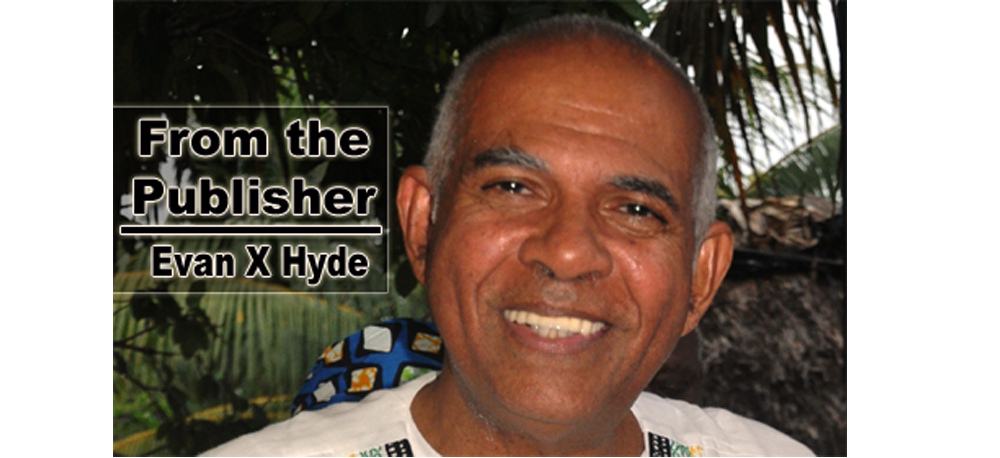I realize now that our generation of Belizeans had been brainwashed to the extent that we willingly referred to ourselves as “British subjects,” and did so in the 1950s and 1960s with no understanding of what the designation really and truly meant. “British subjects” was what was stamped in our passports. This is who and what we were when we travelled abroad.
In my first 17 years of life, I was a colonial subject of the United Kingdom. But, there was so much love and camaraderie amongst the citizens in our various communities that our lives were relatively happy.
Largely because of the inflexible and harsh law-and-order imposed by the British, we experienced almost no murders here in my youth, perhaps eight or ten a year. And I remember many of those incidents which resulted in murder convictions in the Supreme Court, would today be considered only manslaughter or merely self-defence. When Baron Bliss in 1926 bequeathed his entire wealth to the colony of British Honduras, our culture here, at least in the case of my family, was based to a substantial extent on the bountiful fishing in the seas on our coastline, inside and outside of the Belize Barrier Reef.
Much of my family’s fishing when I was a child involved the use of cotton lines with wire leads connected to a hook baited with fish or a silvery “drone” which flashed in the sea and fooled the target fish into thinking it was a real fish. We called such fishing, “towing.” There was also “drop fishing,” which involved anchoring a dory or a sailboat, and then dropping cotton lines with baited hooks to the bottom of the sea. (I can’t say for sure when nylon lines began to replace cotton in our lives.)
Great nostalgia for me involves reminiscing about our days towing in a sailboat in the early morning with two lines trailing behind. Someone would hold on to one of the lines, while another line was tied with a so-called “slip hitch” to the rope by which the boom of the sail was controlled by the captain. It was possible to hook two fighting fish at the same time, whereupon there would be great excitement, even mayhem, in the sailboat, depending on the size of the fish which were hooked.
So then, the two lines tightening with catches at exactly the same time was the ideal. As a child growing up in the middle 1950s at Spanish Caye, I would listen to the grown-ups speak of a magical place they called “Jake Rogers,” where you knew you were there when both lines tightened at the same time.
I suspect that my maternal grandfather may have taken me to Jake Rogers when I was a child. I say this because I remember he and I returning to Spanish Caye one night from the south.
The older people referred to Jake Rogers as a “banks.” What this means is that it was an area of the seabed which rises up out of the depths, so to speak, and where fish gathered in overwhelming numbers.
With reference to my comment in the paragraph before the last, I was only a child, so I am only speculating. The point I want to make in this essay is that as the 50s moved on and became the 60s, I heard less and less about Jake Rogers (my grandfather died in 1957.) By the time I returned from America in 1968, Jake Rogers had disappeared from our family’s conversations.
Now during the time when the 50s were moving on into the 60s, I had heard fishermen, on a few occasions, discuss dynamiting being done in Belize’s seas in the search for oil. There was a white American called W. Ford Young, who represented the Gulf Oil Company, here from the mid-1950s, to the best of my recollection. Later, the Phillips Oil Company came to British Honduras, but all I knew of them was that they sponsored the senior basketball team called Phillips Flyers in the early 1960s.
About four decades after Jake Rogers disappeared from our family mythology, I was shown a list of oil exploration wells drilled in British Honduras/Belize between 1955 and 1997. The names of the oil companies, besides Gulf and Phillips, included Central Resources; Anschutz; Petro-Bze; Spartan; Eagle American; Dover; Shell; Esso; Bright Hawk; Placid; Lucky Goldstar; Marathon; Chevron; and Belexco Inc.
Now remember, in the 1950s we were “British subjects.” If dynamite was being used on our most spectacular fishing grounds, not only would none of us know, absolutely none of us would have been able to do anything about it.
A few weeks ago I sat with the great Mr. Henry Young, who told me that he was the son of a man who worked as a lighthouse keeper at places like Northern Two Caye in the colonial days. So, just before writing this column, I called Pa Hen and asked him if he had ever heard of Jake Rogers. His answer was negative, but he promised to check a couple sources.
Jake Rogers was somewhere between Spanish Caye and Tobacco Caye, but my sense is that it was much closer to Spanish than to Tobacco. No one cares any more, because the discussion today is about tourists. Personally, I never have anything to say about these cruise terminals that are jostling in the area between Stake Bank, Gales Point/Sibun, and Belize City. I am old and sentimental. This is why I spend my time thinking about Jake Rogers and how it just disappeared from existence while you and I were “British subjects.”
Of course, the likelihood is that we are still “British subjects,” when you consider the minions of the mighty Lord.
I’ll see you when I see you.

